constituent assembly of india debates (proceedings)- volume vii
constituent assembly of india debates (proceedings)- volume vii
constituent assembly of india debates (proceedings)- volume vii
You also want an ePaper? Increase the reach of your titles
YUMPU automatically turns print PDFs into web optimized ePapers that Google loves.
the Government <strong>of</strong> Assam. The Assam Government will however always be available to provide such<br />
advice and assistance as the Local Councils may require through its Education Department particularly<br />
with reference to the linking up <strong>of</strong> primary with secondary education. As regards secondary school<br />
education we do not consider that the Hill People in general are able to look after this subject themselves<br />
nor do we consider that this stage should be left without some integration at least with the general<br />
system <strong>of</strong> the Province. There is <strong>of</strong> course no objection to Local Council being made responsible for the<br />
management <strong>of</strong> secondary schools where they are found to have the necessary material. But we consider<br />
that no statutory provision for this necessary and that it should be open to the Council and the<br />
Government <strong>of</strong> Assam by executive instructions to make the necessary arrangements. The Local Councils<br />
will have powers <strong>of</strong> management in all other matters usually administered by local boards and we<br />
consider that on account <strong>of</strong> the special circumstances in the hills the councils should have powers to<br />
make their own administrative regulations and rules. We expect however that in all matters, particularly<br />
those involving technical matters like and management <strong>of</strong> dispensaries or construction <strong>of</strong> roads, the<br />
Local Councils and their staffs will work under the Executive guidance <strong>of</strong> the corresponding Provincial<br />
Department.<br />
For the Mikir and the North Cachar Hills, we recommend that the necessary supervision and guidance<br />
should be provided for a period <strong>of</strong> six years which we expect will be the term <strong>of</strong> two councils by the<br />
appointment <strong>of</strong> the District or Sub-Divisional <strong>of</strong>ficer, as the case may be, as ex-<strong>of</strong>ficio President <strong>of</strong> the<br />
Council with powers, subject to the control <strong>of</strong> the Government <strong>of</strong> Assam, to modify or annul resolutions<br />
<strong>of</strong> the Council and to issue instructions as he may find necessary.<br />
14. FINANCE -<br />
(a) Powers <strong>of</strong> the Council. - The next question we propose to consider is finance. A demand<br />
common to the Naga Hills, the Khasi and Jaintia Hills, the Garo Hills and the Lushai Hill is that all powers<br />
<strong>of</strong> taxation should rest in the National Councils. The National Conference <strong>of</strong> the Garo and <strong>of</strong> the Khasi<br />
and Jaintia Hills suggested a contribution to the provincial revenues or a sharing <strong>of</strong> certain items. If this<br />
were accepted even the Centre would have no powers to levy finances in these areas. Suggestions<br />
regarding contribution to provincial revenues are obviously based on the assumption that the district, in<br />
addition to what it needs for its own expenditure, will have a surplus to make over to the Provincial<br />
Government. In the case <strong>of</strong> the Garo Hills, it was suggested that the abolition <strong>of</strong> zamindari rights in that<br />
area would result in a considerable augmentation <strong>of</strong> the revenues <strong>of</strong> the district which would then be<br />
able to spare a certain sum to the Provincial Government, and generally the idea seems to be that given<br />
sufficient powers the Districts will be able to increase their revenues by exploitation <strong>of</strong> forests, mineral<br />
and hydro-electrical potentialities. Not only do some <strong>of</strong> the districts feel that they will have plenty <strong>of</strong><br />
money in due course but the demand for all powers <strong>of</strong> taxation is based to a large extent on the fear that<br />
if the Provincial Government has those powers they may not get a fair deal and there may be diversion<br />
<strong>of</strong> money to other districts. Districts which, on the other hand feel that they do not command potential<br />
sources <strong>of</strong> revenue or at least realise that the development <strong>of</strong> the resources will take time during which<br />
they remained deficit can only make a vague demand for allocation <strong>of</strong> funds from a benevolent Province<br />
or Centre to supplement local resources.<br />
The question <strong>of</strong> finance and powers <strong>of</strong> taxation in an atmosphere <strong>of</strong> suspicion and fear is not an easy<br />
one. Any surplus district is likely to examine the provincial expenditure with a jealous eye to find out<br />
whether it gets a good share <strong>of</strong> expenditure for its own benefit or not. The extreme case is the<br />
expectation or demand that all the revenues derived from a particular district must be spent within that<br />
district itself. It is obvious however that where different districts are functioning under a common<br />
Provincial Government, the revenues <strong>of</strong> the whole area become diverted to a common pool from which<br />
they are distributed to the best possible advantage <strong>of</strong> the Province as a whole. Should all powers <strong>of</strong><br />
taxation and appropriation <strong>of</strong> revenues be placed in the hands <strong>of</strong> the hills districts, the plains districts will<br />
not fail to make a similar demand, and if they do, there would be little justification to refuse it to them.


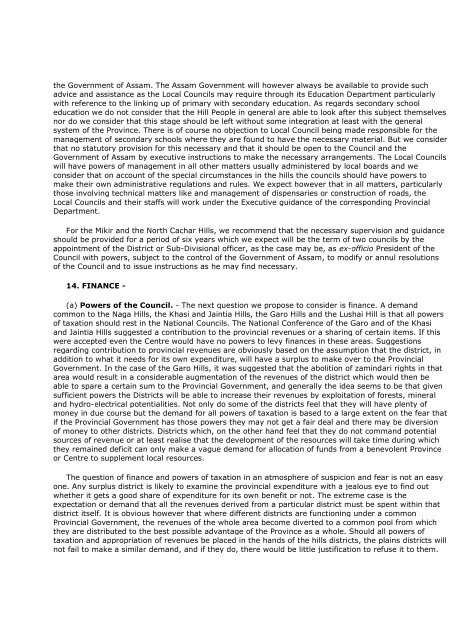
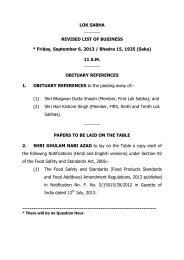
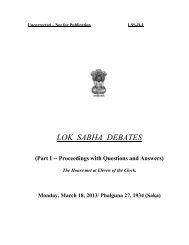
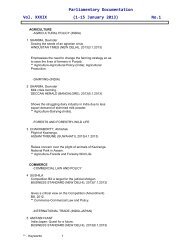
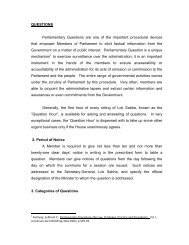
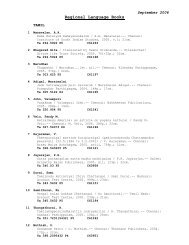
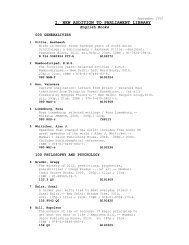
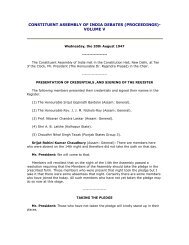
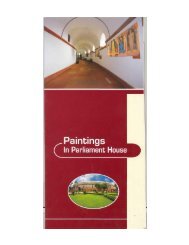
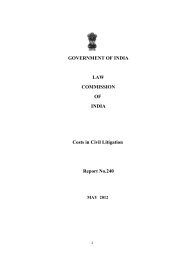
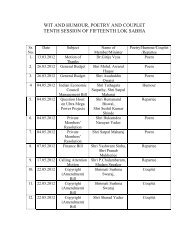
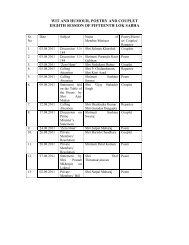

![gÉÉŌ A.]ÉŌ. xÉÉxÉÉ](https://img.yumpu.com/8015720/1/190x245/geeo-aeo-xeexee.jpg?quality=85)
